detail profile igor dmitriev

Igor Dmitriev
Igor Dmitriev
atau dikenal sebagai
Riwayat Hidup
Honored Artist of the RSFSR (12/10/1963).
People's Artist of the RSFSR (08/15/1988).
Academician of the National Academy of Motion Picture Arts and Sciences of Russia.
Member of the English Club and the World Club of Petersburgers.
The future actor participated in school amateur performances, studied in the pioneer song and dance ensemble of the Leningrad Palace of Pioneers.
He made his film debut at the age of 12 - the first role was a Polish high school student in V.
Fainberg's film "The Voice of Taras".
During the Great Patriotic War, together with his mother, he ended up in the city of Molotov (Perm), where they were evacuated along with the Mariinsky Theater and the choreographic school.
In 1943 he entered the theater studio at the Perm Drama Theatre, after classes he stayed for performances, played in crowd scenes.
In September 1944 he came to Moscow to enter the theater institute.
He entered the V.
I.
Nemirovich-Danchenko at the Moscow Art Theater, in the class of People's Artists of the USSR Pavel Vladimirovich Massalsky and Sergei Kapitonovich Blinnikov.
In 1948 he graduated from the Moscow Art Theater School and was accepted into the troupe of the Leningrad Drama Theater, which now bears the name of Vera Fedorovna Komissarzhevskaya.
After leaving the theater, he became an actor at the Lenfilm Film Actor Studio.
The first significant film role was Yevgeny Listnitsky in the film Quiet Flows the Don (1957).
In addition to the domestic actor, he worked a lot at film studios in Hungary, Poland, the GDR, the USA, Morocco, Algeria.
Igor Dmitriev is the author of about 30 TV programs from the cycle "At Igor D.
.
.
" on television in St.
Petersburg.
This cycle was awarded the Golden Horse Grand Prix at the Velvet Season international festival.
In 1984, Igor Dmitriev was accepted into the troupe of the Leningrad Academic Comedy Theater named after N.
P.
Akimov, on the stage of which he made his debut in the role of Chinzanov in the play based on the play by Sergei Mikhalkov "Kings Can Do Everything".
The return of the actor to the theater stage was a notable event in the cultural life of Leningrad in 1984.
Collaborated with the St.
Petersburg Theater "Russian Entreprise" named after Andrei Mironov and played in the play "Talents and Admirers" at the Bolshoi Drama Theater named after G.
A.
Tovstonogov.
Igor Dmitriev revived the genre of melody and, having managed to achieve a true harmony of sound and word, was the only Russian actor who mastered this art.
For the anniversary of the actor, the Rossiya TV channel shot a documentary film about the life and work of Igor Dmitriev "People's Marquis of the Soviet Union" (2007).
Info Pribadi
Peran Yang Di Mainkan Igor Dmitriev
 In 1568 Saadi prince Abdelmalek is exiled...
In 1568 Saadi prince Abdelmalek is exiled...Drums of Fire 1990
In 1568, Saadi prince Abdelmalek is exiled from Morocco by his brothers, an event that is only the beginning of his adventures: fighting the Spanish Inquisition, taking part in the Battle of Lepanto, being incarcerated in Alicante prison, and assist in the Conquest of Tunis. Eventually, he returns to Morocco to fulfill his destiny.
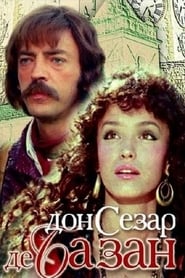 A musical adaptation of the classic...
A musical adaptation of the classic...Don Cesar de Bazan 1989
A musical adaptation of the classic play "Don César de Bazan" by Adolphe d'Ennery and Philippe Dumanoir.
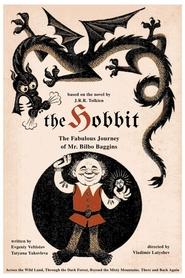 The Author ie J R R...
The Author ie J R R...The Fabulous Journey of Mr. Bilbo Baggins, the Hobbit, Across the Wild Land, Through the Dark Forest, Beyond the Misty Mountains. There and Back Again 1985
The Author, i.e. J. R. R. Tolkien himself (played by Zinovij Gerdt), tells "his" story: the life of Bilbo Baggins, a quiet and enjoyable hobbit, is turned upside down when he decides to join the wizard Gandalf and a company of thirteen dwarves in an attempt to regain a treasure stolen from the latter. [Soviet television movie adaptation of "The Hobbit"]
 The young talented girl Anya dreaming...
The young talented girl Anya dreaming...Anna Pavlova 1983
The young talented girl Anya, dreaming of a ballet, enters the choreographic school. Due to poor health, learning for her becomes unbearably difficult, but dreams of a ballerina career make her stubbornly deal with adversity. Anna’s performance and determination does not go unnoticed by the celebrated choreographer Marius Petipa, who helps to stage Pavlova's examination performance. Such a gift becomes a starting point for Ani in the world of big ballet, her fast-paced career, position in high society and world fame make her forget about close friends and especially her faithful Michel Fokine, who invested a lot of energy in the formation of a ballerina.
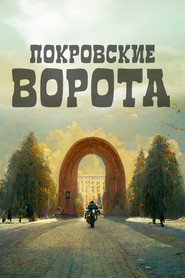 Stories from the lives of the...
Stories from the lives of the...The Pokrovsky Gates 1983
Stories from the lives of the tenants of the Moscow's communal apartment: Kostik, who is a college student, lives with his aunt while studying; Arkady Velyurov who is a performing artist; Khobotovs, who are a divorced couple; and Sava, who is Margarita Khobotov's new fiancé. All these people live in one apartment and their lives constantly touch each other's.
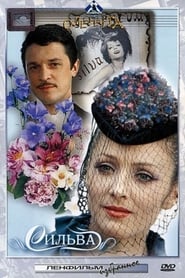 Silva Varescu a selfsufficient and professionally...
Silva Varescu a selfsufficient and professionally...Silva 1981
Silva Varescu, a self-sufficient and professionally successful cabaret performer from Budapest, is about to embark on a tour of America. Three of her aristocratic admirers, named Edwin, Feri and Boni, prefer her to stay. Edwin, unaware that his parents have already arranged a marriage for him back home in Vienna, orders a notary to prepare a promissory note of his expected marriage to Silva within ten weeks.
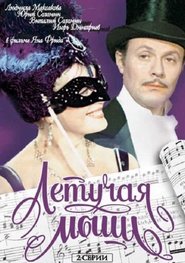 Eisenstein gets in trouble for shooting...
Eisenstein gets in trouble for shooting...The Bat 1979
Eisenstein gets in trouble for shooting a grouse. He is told that he must go to prison for his crime. However, his friend has invited him to an aristocratic ball. Eisenstein, despite being married, wants to go to the ball to meet women. Eisenstein lies to his wife. He tells her that he is going to prison but actually he goes to the ball. His story arises the suspicion of his wife. His wife devises a plot to catch her womanizing husband.
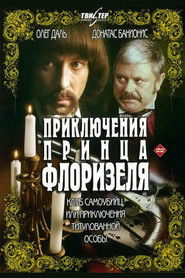 A mostly comical tale of allpowerful...
A mostly comical tale of allpowerful...The Adventures of Prince Florisel 1979
A mostly comical tale of all-powerful and wealthy Bavarian prince adventures that started when prince was seeking to deal with the boredom. Joining the Club of Suicide society, he uncovered the mastermind criminal behind it, and vowed to get rid of him by any means necessary, following deaths of several servants when dreaded president of club makes dashing escape. During that point, story changes into nearly second movie, as prince has to uncover yet another crime.
 The main character is a talented...
The main character is a talented...A Declaration of Love 1978
The main character is a talented, but timid writer of the Filippok experiencing with his country the difficult years of revolution, devastation and war. Adversity helps him overcome the unrequited and faithful love for the widow of Commissioner Zinochka, who bossily manages his career, not hesitating to start novels with other men. Filippok will describe the story of his life in a book that at the end of days will be presented by a terminally ill, but still dearly beloved wife, with gratitude for the experience.
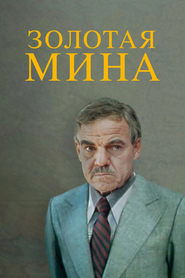 The film is set in the 1970...
The film is set in the 1970...Golden Mine 1977
The film is set in the 1970s Leningrad, Russia. Fugitive Brunov is a dangerous criminal, who escaped from jail. He is after the treasure that was hidden by him years ago at his former country-house. He is having plastic surgery to hide his identity, while preparing for his next crime. He is trying to kill another man, who is also after the same treasure. Investigators Zarubin, Kromkin and Lebedeva are untangling the case.
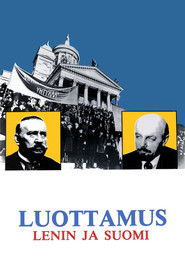 Directed by Edvin Laine and Viktor...
Directed by Edvin Laine and Viktor...Trust 1976
Directed by Edvin Laine and Viktor Tregubovich, Trust (1976) is a Finnish-Soviet historical drama film that follows the relations between Finland and the Soviet Union. In December 1917, the Finnish delegation, composed of Chairman of the Senate Finance Department P.E. Svinhufvud (Vilho Siivola), Senator Carl Enckell (Yrjö Tähtelä) and State Secretary Gustaf Idman (Yrjö Paulo) arrive in St. Petersburg to meet V.I. Lenin (Kirill Lavrov) to gain recognition for the country's independence.
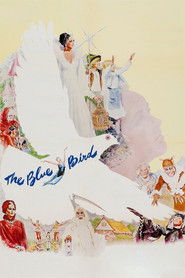 Peasant children Mytyl and Tyltyl are...
Peasant children Mytyl and Tyltyl are...The Blue Bird 1976
Peasant children Mytyl and Tyltyl are led on a magical quest for the fabulous Blue Bird of Happiness by the fairy Berylune. On their journey, they're accompanied by the anthropomorphized presences of a Dog, a Cat, Light, Fire, and Bread, among other entities.
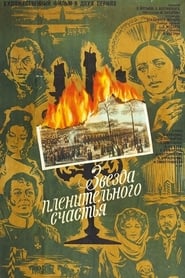 In December 1825 distinguished members of the...
In December 1825 distinguished members of the...The Captivating Star of Happiness 1975
In December 1825, distinguished members of the Russian military, most of whom were quite affluent and of noble lineage, took it upon themselves to stir revolution against the autocratic and tyrannical Czar Nikolai I in the wake of his not honoring the drafting of a constitution for the Russian people. The revolution failed miserably and the conspirators (known as the Decembrists) were weeded out by the czar himself. One by one, each of the conspirators confess and are systematically exiled to the harsh winters of Siberia, slated to work and wither in a prison/mine. The wives of the conspirators are faced with the prospect of leaving the bosom of wealth and family (including their own children) to be with their husbands in the brutal Siberian locale. If they agree to this, they face having their illustrious social stations stripped away and certain disdain from everyone around them...
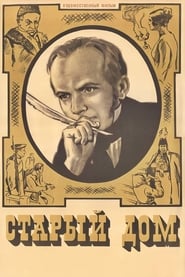 About the early years of the...
About the early years of the...The Old House 1970
About the early years of the life of the philosopher and writer Alexander Herzen, about his first and unrequited love, about the throwing of youth and growing up of a young critic and revolutioner. According to his father, he comes from an ancient Russian family, and his mother was a simple German woman. As an illegitimate son, he was not given the name of his father, Yakovlev. In his youth, he was fond of the ideas of freedom, for which it is not a pity to fight, which even then was close to the ideals of the revolution...
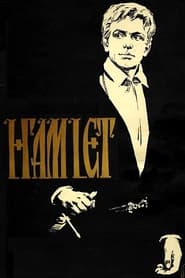 Shakespeares 17th century masterpiece about the...
Shakespeares 17th century masterpiece about the...Hamlet 1964
Shakespeare's 17th century masterpiece about the "Melancholy Dane" was given one of its best screen treatments by Soviet director Grigori Kozintsev. Kozintsev's Elsinore was a real castle in Estonia, utilized metaphorically as the "stone prison" of the mind wherein Hamlet must confine himself in order to avenge his father's death. Hamlet himself is portrayed (by Innokenti Smoktunovsky) as the sole sensitive intellectual in a world made up of debauchers and revellers. Several of Kozintsev directorial choices seem deliberately calculated to inflame the purists: Hamlet's delivers his "To be or not to be" soliloquy with his back to the camera, allowing the audience to fill in its own interpretations.
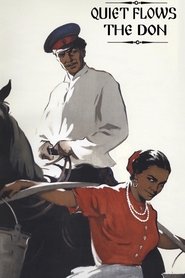 Based on the novel of the...
Based on the novel of the...Quiet Flows the Don 1957
Based on the novel of the same name by Mikhail Sholokhov, about the fate of people broken by the First World War, the October Revolution of 1917 and the Civil War in Russia (1917-1922), about the collapse of the foundations and ideals of the Don Cossacks of Russia at the beginning of the XX century, about the personal tragedy of the protagonist — Grigoriy Melekhov.
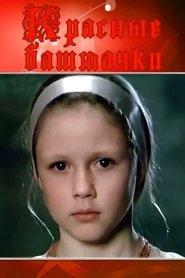 About the adventures of a little...
About the adventures of a little...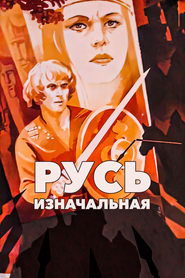 The film takes place in preChristian...
The film takes place in preChristian... Based on the famous fairytale The...
Based on the famous fairytale The...